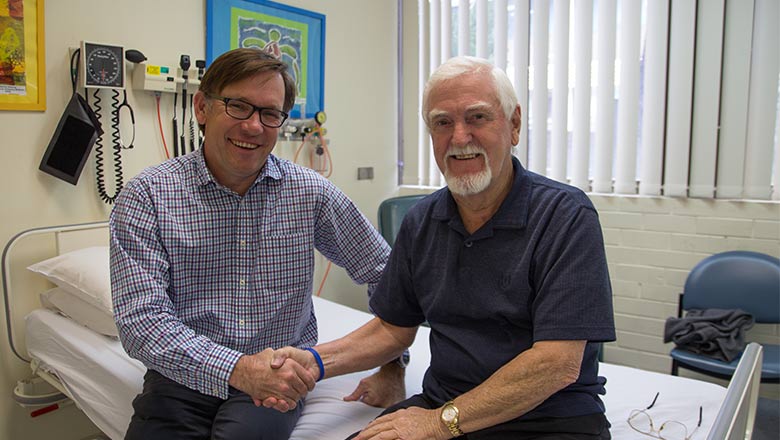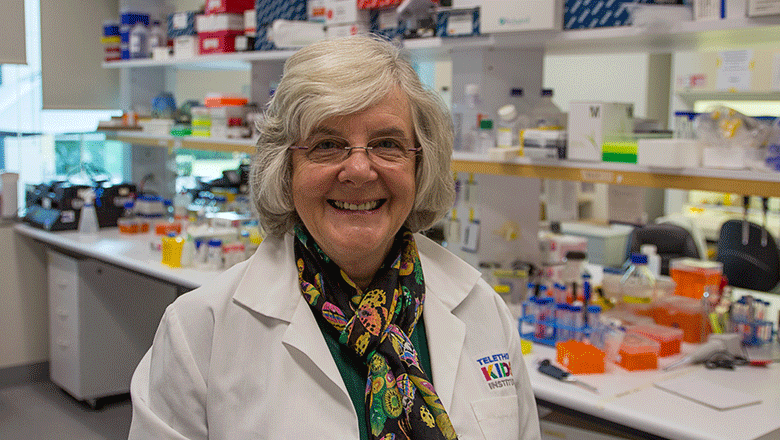Search
News & Events
Investigational vaccine for WA's meningococcal threatPerth researchers have begun a clinical trial of an investigational Meningococcal B vaccine against the most common form of meningococcal disease in W.A.
News & Events
Pneumonia rates improve in Aboriginal childrenNew research from The Kids for Child Health Research shows that the pneumococcal vaccine program has contributed to closing of the gap
News & Events
Perth children needed for Swine Flu vaccine studyPerth researchers are about to begin testing of a new vaccine to protect against swine flu in children.
News & Events
Potential new vaccine for WA's meningococcal threatPerth researchers are trialling a Meningococcal B vaccine that could potentially provide protection

News & Events
Vaccine trial aims to curb ‘superbug’Sarah Le Roi knows well how debilitating Clostridium difficile infection (CDI) can be. She was struck down with the 'superbug' while on holiday in the US.

News & Events
Jennie Blackwell made a Fellow of the Australian Academy of ScienceProfessor Jenny Blackwell has been made a Fellow of the Australian Academy of Science, an honour reserved for the very best scientists in the country.
News & Events
Wesfarmers Centre of Vaccine and Infectious Diseases Research Seminar Series 2014Wesfarmers Centre of Vaccine and Infectious Diseases Research Seminar Series 2014.Genetic and functional studies of leishmaniasis: understanding the role of HLA
News & Events
Infectious Disease & Vaccination Public SeminarHear the facts about vaccination and infectious disease from some of Australia's leading experts: Professor Jonathan Carapetis, Dr Peter Richmond

News & Events
WANTED: 'Flu BustersHundreds of healthy volunteers are needed in Perth to test the effectiveness of a current 'flu vaccine.
News & Events
Bird flu vaccine produces promising resultsAn Australian-developed vaccine that's been trialed in Perth has been found to produce a strong immune response against the H5N1 bird flu virus.
